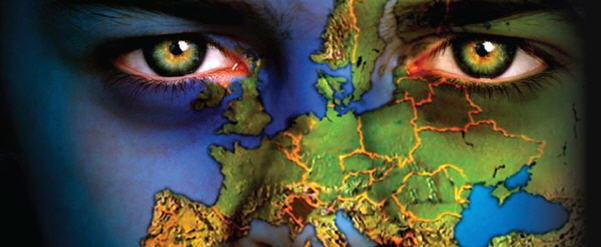Krisztina Varsányi - 07.02.2018 16:08
Mulikulturelle Großstädte - Welche (gute und schlechte) Erfahrungen hast du im Zusammenhang damit? / Big multicultural cities - What (good and bad) experiences do you have with them?
Alice Hytter - 16.04.2018 17:56
This is my, short, informative text about two multicultural cities in the world.
Big Multicultural Cities Around the World
By Alice Hytter

Migration has since the beginning of humanity’s existence been a strategy of survival, ever since the migration from Africa up to now, where migration is one of the few ways for people to survive the wars that are erupting in the world. We have migration to thank for how for how the world looks like today, especially when it comes to our ever so big multicultural societies. As of today many countries all around the globe offer sanctuary for people of different cultures, races and ethnicities. These are two of the biggest and most well known multicultural cities of the world.
Amsterdam currently has with over 1 million inhabitants, whereas more or less fifty percent were born or have have parents that were born abroad. With its staggering (more than) 180 different nationalities Amsterdam is one of the most culturally diverse cities in Europe. A vast majority of the inhabitants that were born abroad have Moroccan, Turkish or Surinami heritage. Different from many other multicultural cities, Amsterdam has devoted itself to funding the prevention of ghetto formation. This means that Amsterdam is not only a sanctuary for different cultures, the level of integration is also very high.
New York is one of the world’s first so called megacities with an astonishing number of over 19 million inhabitants. Nearly 40% of the city’s population is born on foreign ground and over 65% of the city’s inhabitants are counted as “non-white”. New York also holds one of the world’s largest Jewish communities. The various cultural communities (and its differences) are represented rather well, looking at how the city has been divided. Many districts take their name from the culture populating that specific area, such as Chinatown or the Indian district. Each and every district offers a taste of the culture populating the area and many parts of the city have become tourist attractions, such as the Russian district.
These are of course not the only multicultural cities of the world. Most countries host their own multicultural society, which indubitably varies depending on the variation of cultural heritage that is present in the country. Today the necessity of well working multicultural societies is huge, due to the high rate of migration. Many claim this to be a blessing to society, others claim that it’s a threat to our beloved cultures and traditions. What do you believe?
Växjö katedralskola
2018.04.16
Sources
Iamamsterdam.com, https://www.iamsterdam.com/en/living/about-living-in-amsterdam/people-culture/diversity-in-the-city, 2018-03-28
Worldcitiescultureforum.com, 2018, http://www.worldcitiescultureforum.com/cities/new-york, 2018-03-28
Alice Hytter, VKS Växjö/Sweden
Stella Ujma - 26.04.2018 16:06
Hi Alice,
your article was really informative and interesting. I personally think that living in multicultural city has many advantages. Everytime I visit Hamburg I discover new things to eat and to see, which have their origin in a different country than Germany. It is really amazing to get to know new cultures just by walking through your city. Also it is really inspiring and bridens your horizon. You get to know many different people with different stories to tell, which is also really amazing. So for me, a multicultural city has many advantages and helps to develope your character.
Olga Dziura - 20.05.2018 12:31
Hi Alice,
I really liked your article and the information you presented in it was very interesting. I think that multicultural societies have many advantages, for instance employees coming from various cultures can contribute with a wider range of perspectives on an assignment. Multicultural societies broaden our horizons, just like Stella wrote. If we accept other people's traditions and cultivate ours, the multiculturalism will not be a threat to our cultures.